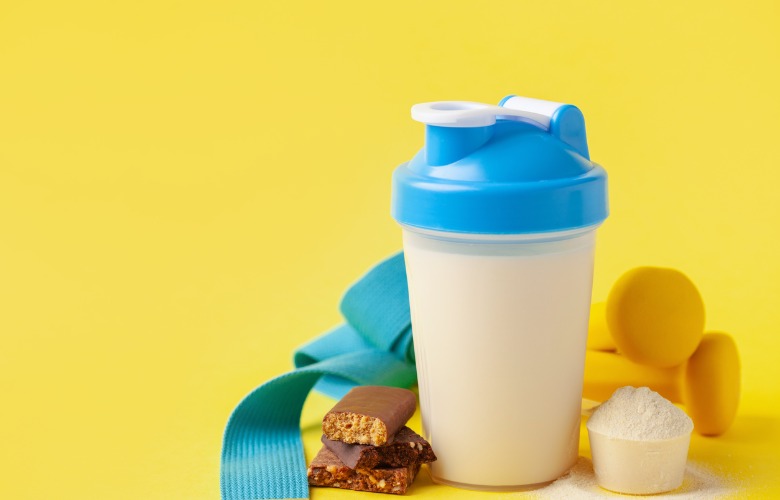What Are Functional Foods and How Do They Support Wellness?
What does functional food mean?
Functional foods are simply foods that provide positive health benefits beyond essential nutrition. These foods are meant to go beyond the daily recommendation of nutrients and contain nutrients that have additional functions, including reducing the risk of disease or helping to increase energy. For example, foods that are enhanced with vitamins or other nutrients such as calcium, fiber, or omega-3 are considered functional foods as the added nutrients are known to support bone health, prevent constipation, or reduce the risk of heart disease.
History of functional foods
About 2,500 years ago, a Greek physician named Hippocrates was quoted as saying: “Let food be thy medicine and medicine be thy food.” This statement so encapsulates what functional food is all about. While the term is a buzzword of late, eating food for more than just staving off starvation has long been practiced throughout history and many cultures.
The first time the term functional foods was used was in Japan in the 1980s. The food definition they used by the Japanese was “refers to processed foods containing ingredients that aid specific bodily functions in addition to being nutritious.”
Today, we consider whole foods that are minimally processed, nutrient-rich, and have added health benefits to be functional foods.
Types of functional foods
The different types of functional foods fall into many categories, including:
- Conventional foods – natural, whole foods
- Modified foods – nutrients or fortified food
- Foods that help manage conditions – glucose metabolism, weight management
- Foods that support lifestyles – vegan, vegetarian, building muscle mass
- Foods supporting wellness – reducing stress, increasing energy, or boosting immune function.
Conventional foods
Conventional foods are natural, whole foods that are high in nutrients. These foods can be helpful for nutritional deficiencies, natural superfoods, probiotics, or foods that act as adaptogens. Eating a healthy diet that includes a diversity of whole foods, including:
- Vegetables – cauliflower, kale, broccoli, zucchini
- Fruit – berries, apples, oranges, bananas, kiwi, dragon fruit
- Nuts and seeds – chia seeds, pumpkins seeds, flax seeds, almonds, pistachios, cashews
- Beans and legumes – chickpeas, lentils, black beans, kidney beans
- Whole grains – brown rice, oats, barley
- Seafood – salmon, sardines, cod, tuna
- Fermented foods – kombucha, kimchi, sauerkraut, kefir
- Adaptogens – turmeric, maca, Reishi, ashwagandha, ginseng
- Superfoods – berries, green, leafy vegetables, acai, avocado
- Herbs and spices – cinnamon, coriander, ginger, cayenne pepper
- Coffee and teas – coffee, black tea, chai tea, green tea.
Modified foods
Modified foods are functional foods that are fortified with vitamins, minerals, and omega-3 fatty acids.
- Fortified dairy foods like milk and yogurt
- Fortified cereals
- Fortified eggs
- Fortified grains and bread
- Fortified juices
Foods that help manage conditions
Foods that help manage conditions or protect against disease are usually antioxidant-rich, high in healthy fats, or fiber-rich. Antioxidant-rich foods can help neutralize free radicals, prevent cell damage – helping to prevent cancer, heart disease, or diabetes. Fortified foods to help prevent or treat nutritional deficiencies, for example – iron-rich or iron-fortified foods for those with iron deficiency like anemia. Foods high in healthy fats or omega-3 fatty acids support heart health, support mood function, and reduce inflammation. Fiber-rich foods for supporting heart health and digestive health. Foods that help growth and development in infants and children – including folic acid and fortified cereals.
Foods that support lifestyles
Some lifestyles need extra nutrients or nutritional support that may be harder while eating specific diets.
Vegan and Vegetarian
Eating an entirely plant-based diet can be challenging – nutrients vegans most vegans need to supplement with include:
- Vitamin B12 is mainly found in animal sources; the only plant-based sources would include yeast extract, nutritional yeast, spirulina, chlorella, and mushrooms grown in B12 rich soils
- Vitamin D – adequate sun exposure or supplements
- Omega-3 fatty acids – plant-sourced omega-3 include chia seeds, flax seeds, walnuts, hemp seeds
- Iron – iron deficiency can lead to anemia; eating iron-rich foods can help
- Calcium – studies show most vegans don’t get enough calcium in their diets
- Zinc – zinc deficiency can lead to hair loss, diarrhea, and a lowered immune function
- Iodine – Vegans and vegetarians are considered at risk for iodine deficiency
- Protein – plant-based protein powder or whole food bars can be a great supplement to any vegan or vegetarian diet
Sports nutrition
There are all kinds of functional foods to help with your workout, including:
- Pre-workout – these are meant to boost energy levels, help with alertness, and increase endurance – beetroot, creatine monohydrate, green tea, and American ginseng.
- Post-workout – these foods are to help you refuel after working out, like replenishing your muscles’ glycogen reserves, recovery by rebuilding muscle tissue, and replacing energy you used – tart cherry, Boswellia, eleuthero root, and pineapple juice.
- Branch Chain Amino Acids or BCAAs – contains valine, leucine, and isoleucine, all of which play a role in protein synthesis and the glucose uptake of cells—used for overall muscle building and recovery post-exercise. Foods that contain BCAAs include eggs, meat, poultry, milk, cheese, nuts, seeds, soy products, and legumes.
- Fat burning and metabolism – selenium, B complex vitamins, and creatine can all help burn fat and increase metabolism. Foods that boost metabolism include lentils, cruciferous vegetables, beans, lean meats, citrus fruits, hot peppers, fish oil, cinnamon, and garlic.
- Tone muscles – building lean muscle means burning more calories; these supplements help support muscle tone include CLA, Vitamin C, Calcium, and magnesium.
- Increasing protein intake – Composed of amino acids, protein contains carbon, hydrogen, nitrogen, oxygen, and sulfur compounds. Amino acids are the building blocks of protein, while proteins are the building blocks of muscle mass. It is recommended that 10% to 35% of daily calories come from protein. Protein powders are a great example of functional food and come in a range of types, including casein protein powder, whey protein powder, and plant-based protein powder.
Breastfeeding
When breastfeeding, extra calories are needed each day approx. 300-350 more per day – taking a postnatal vitamin is also essential. In addition, if your milk supply is low, some foods can help increase lactation.
- Postnatal vitamin
- Lactation tea – teas that include herbs like fenugreek, fennel, and goat’s rue can help increase lactation
- Lactation cookies – these can be homemade or store-bought – the ingredients similar to regular cookies but include components such as brewer’s yeast, applesauce, chia seeds, oats, and coconut oil to help increase lactation and support digestion
- Foods that increase lactation include oats, garlic, dark leafy, greens, sweet potatoes, carrots, sesame seeds, brewer’s yeast, and apricots
Ketogenic diet and weight management
- Sugar replacements – monk fruit, stevia, and xylitol can replace sugar with keto diets and weight management programs
- Electrolyte tablets – helps avoid electrolyte imbalance, dehydration, and muscle cramps
- Ketosis focused supplements – help move the body toward ketosis and fat burning
- Metabolic formulas – support healthy lipolysis, normal cortisol levels, thermogenic activity, and insulin function
- Meal replacement formulas can help support weight management
- Healthy fats – coconut oil, ghee, and olive oil are part of the keto diet
Foods supporting wellness
Foods supporting wellness include adaptogens, stress reducers, immune boosters, and energy boosters. This also would consist of functional foods that help to support a healthy microbiome, like probiotics.
- Adaptogens – help reduce stress include ashwagandha
- Immune boosters – elderberry, echinacea, mushrooms, and zinc-rich foods
- Energy boosters – like ginseng or maca root
- Microbiome support – Probiotic-rich functional foods including prebiotic and probiotic muffins,
- Greens and superfoods – help support overall health and wellness
Kinds of functional foods
There are many different kinds of functional foods; they can be whole foods, fortified foods, or foods meant for different lifestyles. The functional foods you may find available include: bars, protein powders, meal replacements, spices, oils, soups, shakes, greens and superfoods, and alternative sweeteners or sugar replacements.

Jemile earned a degree in Food Studies and Writing and has worked for almost 23 years in the medical and health industries. She has been a digital marketing consultant for Acupuncture Atlanta since 2011 as the social media manager and content manager. Writing has been a childhood dream for Jemile and writing daily for clients in the health, wellness, food, and art industries have been phenomenal. Jemile is originally from Brooklyn, NY, and lives in the Hudson Valley, NY. She lives with her husband, two daughters, her dog, and two fish. You can contact Jemile via Linkedin, her mom blog, or her website, lunaroseconsulting.com





